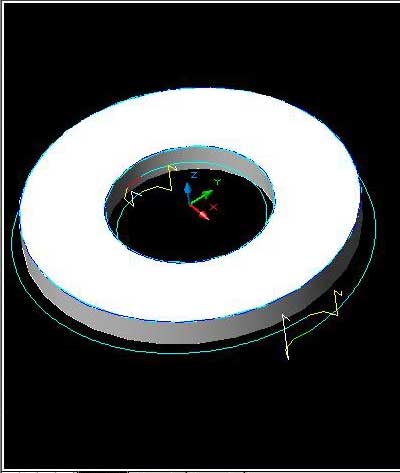Question
There seem to be several conflicting opinions about using a phase converter to run CNC equipment. I'm finding a lot of used 3-phase CNC routers out there... but only 1-phase out here. Any advice is most appreciated.
Forum Responses
(CNC Forum)
From contributor C:
There is nothing wrong with using a rotary phase converter to power a CNC machine. The problems come from trying to cut corners with an inexpensive converter. Our local utility is required to maintain +/- 5% of stated voltages, some allow a 10% variation. If you have to go this route, spend the extra money on a unit that promises 5%, but donít freak out if you experience up to 10%. I donít have any brand names for you. My recommendation is to call any of the machine manufacturers youíre considering, even though youíre buying used. The good vendors will want to help you anyway and should have recommended suppliers and sizing requirements. The manufacturerís word is the one that matters most in this case.
If you havenít called your local utility yet, it could save you a lot of hassle. They may be able to set a third transformer on your existing pole and not only save you money, but also give you a cleaner, more dependable voltage. If your service is overhead, you could get off pretty cheap. If itís underground, hope that they used aluminum service conductors because they can pull out the current three and pull in 4 copper conductors that have the same current carrying capacity but take up less space in the pipe. If they used copper and the conduit is full, theyíd have to trench in bigger pipe. Another trick is to take your existing 220-volt loads and spread them out over the three phases to reduce the load requirements on each conductor.
There are two main schools of thought on rotary phase converter design. The first one and the oldest (that is still around) is to start a motor or generator by creating a phase shift using a large bank of run capacitors. When the motor is spinning, the capacitors stay in the circuit and as a result create a very high voltage from the manufactured line to any of the other two single phase lines. This voltage is way too high for any CNC equipment, so the companies who sell these types also sell what they usually call a voltage stabilizer. Voltage stabilizers are transformers to buck the voltage back down.
The newer method - and better in my opinion - is to start the motor or generator by creating a phase shift using capacitors, but this time using motor start capacitors. When the motor is up to speed, these capacitors are taken out of the circuit and the remaining motor run capacitors are left in to help balance the voltage. There is a science to this that requires a lot of testing to get it just right over a large load range. There are only a handful of companies that do it right and a whole lot more no-name companies who try to copy and donít understand what they are doing. Watch out for these copycat companies; they all seem to claim to have been in business for 39 years... The best converters I have seen are made by Kay Industries in Indiana and Gentec out of Wisconsin. These are both expensive units, but Gentec who makes a lot of converters for OEMs has a consumer division called American Rotary. American Rotaryís CNC units are balanced at least +/-5% through 60% of full current load, which is ideal for CNC equipment. They also have a soft start feature that is built into the unit, which you definitely want if you are going to run a converter over about 10 hp with 100 amp service Ė otherwise your neighbors will complain. I donít know how they sell these things for what they do Ė probably volume - I used to get 3 times what they do for the same size converter when I used to make them. Now I just get theirs, and I donít have any time into making them.
There is a lot of bad information out there about phase converters. Definitely stay away from the cheap copycat garage type converters - especially for CNC use - otherwise you will have nothing but headaches trying to balance your voltage. Donít believe claims of 2% voltage balance through 100% load. In the 20 years of making and installing CNC equipment and a lot of phase converters, I have never seen one do that.
Comment from contributor R:
I also had problems with the 2 to 5% voltage stabilization on my CNC router. After trying phase converters over and over with error readings, I purchased one from Desco Industries and it has performed perfect. It seems to have more power under load then the other brands and it works great for me.
